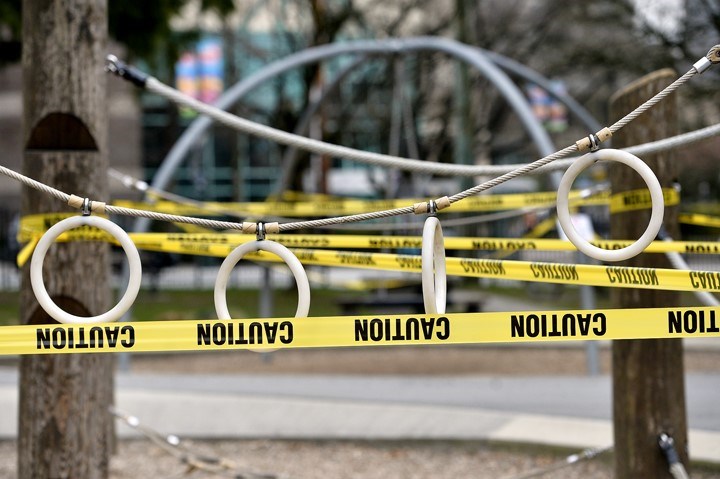The City of New Westminster will hire new bylaw enforcement officers – so existing staff can be deployed to address complex issues like homelessness.
On Monday, council endorsed some recommendations from the education and enforcement working group, one of seven working groups established by the city in response to the COVID-19 crisis. Council directed staff to develop the necessary job descriptions for education-focused bylaw enforcement positions, which will support enforcement of provincial health orders related to the COVID-19 pandemic, and to fill those positions as soon as possible.
“One of the things we really identified in relation to education is that we need a lot more staff because we have a lot of calls,” said Jackie Teed, the city’s manager of planning. “We want to respond to them all because education, even if it is a situation where perhaps a business is not following the protocol, often it’s because they don’t know or don’t fully understand how to do it. We really want the community to know we are responding to everything. With that, more staff will definitely be something we need in the coming weeks, as soon as possible.”
According to staff report, these positions would be required specifically for COVID-related activities, so the cost of staff would be eligible to be submitted to the province through the city’s emergency operations centre.
“At the inaugural education and enforcement working group meeting, it was identified that this training, as well as the skill to have difficult conversations with members of the public, is key to providing the support needed to enforce COVID-related orders,” said a staff report. “Although there are other staff within the city with similar skills, (e.g. parking enforcement officers, animal control officers, police and fire officers), most of these are assigned to essential duties, and staff numbers are reduced due to COVID-related self-isolation requirements.”
To expedite the hiring process during the pandemic, it’s envisioned that the temporary, full-time enforcement positions would be filled by existing staff who have some experience working in sensitive situations. Existing enforcement staff would then be able to deal with issues like homelessness.
“We identified this weekend a growing homelessness activity,” Teed told council Monday.” We really need our current highly trained and experienced bylaws officers, as well as our experienced parking control and animal control officers, to be out there, assisting with the more significant issues. We would like to bring in some new bylaw enforcement officers who could then be deployed physically in responding to the physical distancing issue.”
The education and enforcement working group’s mandate is to provide education and information about preventing the spread of COVID-19 and to support enforcement, or enforce, where authorized, situations where voluntary compliance isn’t obtained related to city or provincial advisories and public health orders. Its focus is public open spaces and parks, construction sites, businesses, and institutions and nonprofit operators.
A staff report states that on March 26 the province issued new orders identifying its expectation that that municipalities use bylaw enforcement officers to assist in enforcement of provincial health orders related to COVID-19 in a much greater way.
Teed said the provincial order didn’t provide municipalities with any new tools for enforcement, and existing tools, such as business licensing, don’t always work.
Council approved a recommendation from the working group to have staff to bring forward the necessary bylaw amendments that would allow bylaw officers to issue tickets for noncompliance with public health orders.
“So far, we haven’t had a situation where we necessarily would have needed a fine. We would always continue to use our progressive enforcement approach, which is very strongly educational, where we start educating and work with each situation for a significant amount of time before we would ticket. The ticketing tool would only be in place if education did not work at all,” Teed said. “From where we are at today, I don’t expect that we would need to issue many, if any, tickets at all.”



